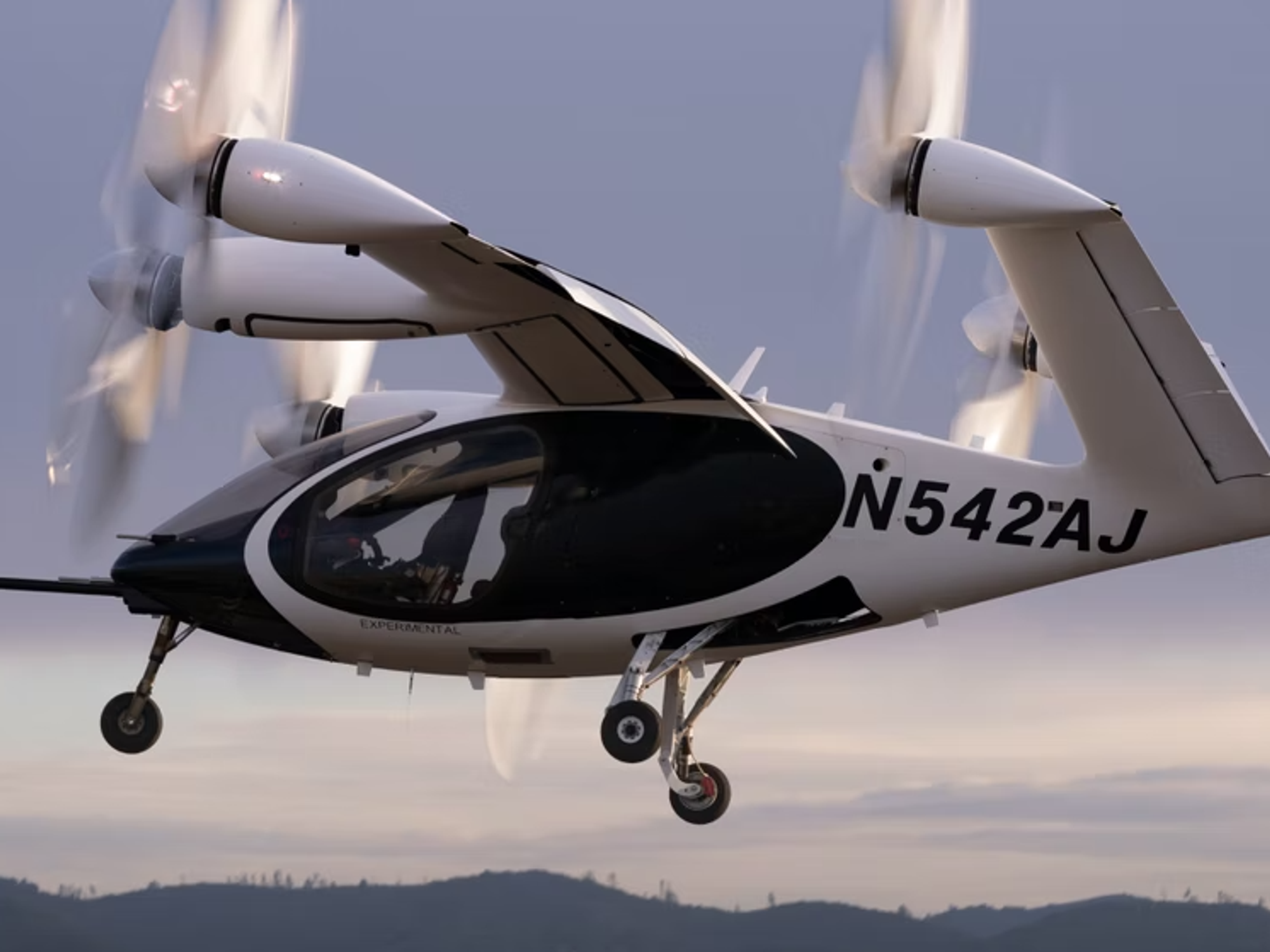Why Delta Is Investing $60M Into an Electric 'Air Taxi'
Samson Amore is a reporter for dot.LA. He holds a degree in journalism from Emerson College. Send tips or pitches to samsonamore@dot.la and find him on Twitter @Samsonamore.

Delta Airlines invested $60 million in Santa Cruz-based electric aircraft startup Joby Aviation Tuesday as the major airline begins to seriously consider using electric air taxis as a way to shuttle people to and from their airport destinations.
The deal sees Delta investing $60 million in exchange for a 2% stake and a seat on Joby’s board, but it could be worth much more.
Delta is dangling a golden carrot in front of the electric aircraft firm, and promised its investment could swell to a total $200 million if Joby hits certain “substantive milestones on the development and delivery of the service” – though it didn’t specify what those milestones would be, and Joby and Delta didn’t immediately return dot.LA’s requests for comment.
Delta plans to integrate Joby’s air taxi services into its network of services to give passengers access to short-range flights to and from city airports starting with Los Angeles and New York. Joby previously stated it plans to open air taxi travel to the public as soon as 2024, though it’s unclear if that’s exactly the same timeline Delta is targeting for its flights.
In May, Joby received certification from the Federal Aviation Administration (FAA) to begin its testing of commercial air taxi services, but currently holds only one of the three certifications it’d need to be sanctioned for widespread use (it still needs to certify its production and aircraft).
According to Joby, the Delta deal is mutually exclusive in the U.S. and U.K. for the first five years following Joby’s commercial launch. This means neither party can seek alternate deals with competitors, a sign that Delta is certainly serious about exploring the air taxi space as part of its long-term business plans. Delta CEO Ed Bastian told reporters the deal is a good one for Delta, since it will rely on Joby to be the operator and figure out the tech, while all Delta has to do is cut checks, ready the airport infrastructure and, theoretically, wait for the cash to flow in.
Joby Aviation CEO JoeBen Bevirt told The Verge Tuesday that he predicted his service could drastically reduce friction in getting to the airport, claiming that a normally 50-minute trip from Manhattan to JFK International Airport outside Queens could be shaved down to just 10 minutes with one of Joby’s air taxis. This is partly because Joby’s aircrafts are designed for electric, vertical takeoff and landing (nicknamed eVTOL), which means they don’t need a full runway.
“Delta has invested billions of dollars in airport infrastructure and has really deep and important relationships with the airports in both New York and L.A.,” Bevirt told TechCrunch.
Still, Delta isn’t the first household name to back Joby since its launch in 2009 – the company also received investments from Toyota and has a deal with Uber. Uber first invested $50 million in Joby’s Series C round in January 2020 and contributed another $75 million in December 2020. Joby also bought Uber Elevate, Uber’s floundering attempt at an air taxi service launched in 2016, which didn’t work out. Joby said it had plans to revamp it, with the goal to “integrate their respective services into each other’s apps, enabling seamless integration between ground and air travel for future customers.”
In September, as part of a similar arrangement, United Airlines announced that it invested $15 million in Brazilian startup Eve Air Mobility, and also placed an order for 200 of Eve’s electric air taxis.
As such, Joby faces stiff competition in the burgeoning air taxi industry. One such, well-funded startup in California is San Francisco-based Archer Aviation. The Joby competitor is also backed by United Airlines, which paid $1 billion to order 200 of its aircraft last year.
Like Joby, which went public on the New York Stock Exchange through a blank-check merger last August at a $4.5 billion valuation, Archer Aviation was on a similar track and went public last July. But Joby’s SPAC deal was criticized by some, including analysts at Bleecker Street Capital, a hedge fund, which argued in a lengthy report that Joby was over-inflating its ability to produce enough aircraft to hit its 2024 targets.
“Unfortunately, as much as we hate traffic, we believe Joby has severely overstated what it can do,” the report noted. “We believe Joby is publicly overstating how many planes it can produce… We believe the project will be massively delayed and miss timelines by years.”
Nonetheless, shares of Joby Aviation jumped by as much as 16% after the Tuesday announcement. Tuesday to as much as 16%. The stock closed the day up roughly 8% to about $4 per share.
- Los Angeles Transportation Technology News - dot.LA ›
- Air Taxis Could Arrive in Long Beach in the Next Decade - dot.LA ›
- LA Venture Deals Slide Amid Economic Worries - dot.LA ›
- Surf Air Mobility, Skydance Media Land $400M Investments - dot.LA ›
- Joby Aviation Lands $180M, Fourward Ventures Snags $50M - dot.LA ›
- How Joby Aviation Plans to Take Over the Air Taxi Space - dot.LA ›
Samson Amore is a reporter for dot.LA. He holds a degree in journalism from Emerson College. Send tips or pitches to samsonamore@dot.la and find him on Twitter @Samsonamore.




 Image Source: Tinder
Image Source: Tinder Image Source: Apple
Image Source: Apple